alumnecc

Transitioning to Online Learning
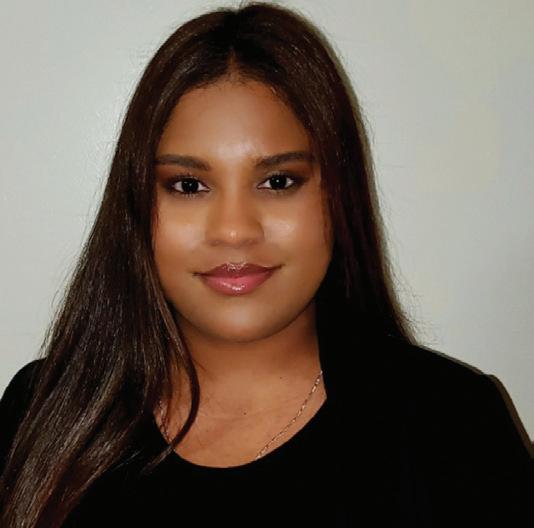
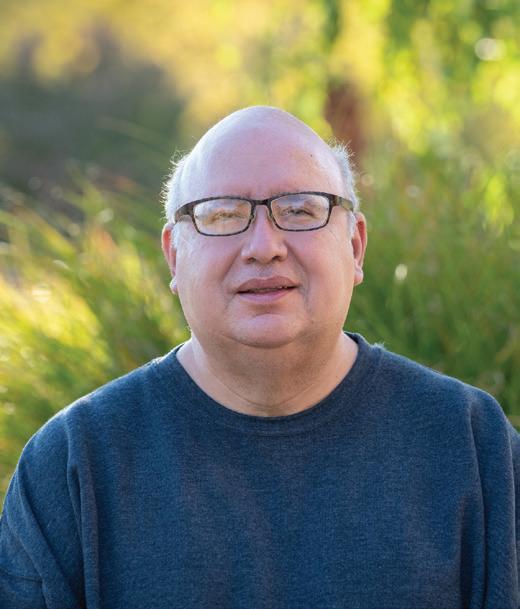








Peer Ambassadors Are the Secret Sauce see page 7




Transitioning to Online Learning










Peer Ambassadors Are the Secret Sauce see page 7


We received great feedback from the last issue of alumnecc, where we celebrated our health care program graduates who have been caring for patients across the Merrimack Valley and beyond for 50+ years, most recently on the front lines of COVID-19.
In this issue, we recognize our faculty, staff, and— most importantly— our students, who have transitioned to online learning due to the pandemic.
We surveyed our students when the pandemic first hit to find out what they were struggling with— we learned that many didn’t have reliable internet, a sufficient laptop, or a quiet place to study in homes that are often crowded with family members.
While these challenges aren’t unique to us, they are more common at community colleges. We have more students who are low-income, more non-native English speakers, and more students balancing families and jobs with college than any other sector of higher education.
We’ve done our best to address all of our students’ pain points, and help them be successful in online learning because we know the importance of the education we provide. Hungry to learn, our students are counting on us to help them get ahead and on track to new careers or further education.
In addition to learning more about our transition to online learning in this issue of alumnecc, you can also find out about our Early College partnerships with local high schools, which have seen phenomenal growth, and read alumni success stories, as our graduates continue to achieve great things in fields such as journalism and computer science.
Please stay safe and know how much we— especially our students— appreciate your continued support. Appreciatively,
Lane A. Glenn President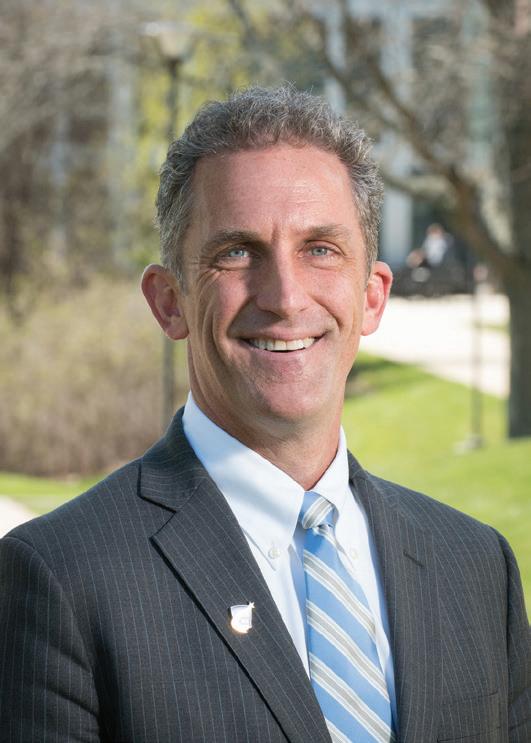
Editor: Ernie Greenslade

Contributing Editors: Sarah Comiskey, Wendy Shaffer
Graphic Designer: Susan Stehfest
Writers: Sarah Comiskey, Sarah Courchesne, Ernie Greenslade, Alex Pecci ‘02
FEATURES
4 GETTING A HEAD START ON COLLEGE

7 TRANSITION TO ONLINE LEARNING


10 ON CAMPUS/IN THE COMMUNITY

14 ALUMNI NEWS ‘ N NOTES

On the cover: Representing the diversity of our students, our peer ambassadors are NECC students and recent alumni who have been successful in online courses and are now helping students who are new to online learning. Each peer ambassador spends 10 hours a week connecting students with resources— from academic coaching, to library resources, to technology support, and more.

Julia McLaughlin, a 2016 graduate of Haverhill High School, earned a bachelor’s degree in psychology from Sacred Hearts University in Fairfield, Conn. in just three years, and, as a result, she was working in her field— as a case manager at an addiction and treatment center— a year ahead of her high school friends.
How did she accomplish such a feat?

McLaughlin was one of a growing number of students taking advantage of Early College through NECC, which allows students to earn free or deeply discounted college credits while still in high school.

With the $35,000 she saved on her bachelor’s, McLaughlin is now enrolled in a 16-month accelerated nursing program at Northeastern University, and will graduate this coming year.
“Because of Early College I’ll have earned two bachelor’s degrees in four years’ time,” McLaughlin said.

“
Because of Early College, I’ll have earned two bachelor’s degrees in four years’ time.
- Julia McLaughlin, 2016 Early College graduate
NECC is one of 19 colleges and universities participating in the statewide Massachusetts Early College Initiative, which partners high schools with colleges and universities for designated programs between them. NECC has designated programs with Haverhill High School, Lawrence High School, and is in the process of applying for another with Whittier Regional Vocational Technical High School.
Students from these designated programs earn college credits for free while they’re still in high school. Plus, the classes count toward both students’ high school graduation requirements and their future college degrees.
“It’s not double the work; it’s double the credit,” said Marcy Yeager, executive director of NECC’s PK12 Partnerships, which administers the Early College program. “They are moving toward degree completion.”
Since it launched in 2018, the Massachusetts Early College Initiative has seen enormous growth, with 4,200 students from 37 high schools projected to be enrolled by fiscal year 2021. These students will earn an estimated 25,000 college credits and realize savings of $5.4 million dollars in tuition and fees.


“We have students graduating from high school with a year of college already completed,” Yeager says.
“The savings from student loans and student debt are unbelievable.”
NECC also offers its Early College program to students from other high schools. Those students can earn credits at a 50% discount. Additional financial help is often available to those students, too.
- continued on page 6
The financial rewards can be even sweeter for Early College students who choose to complete their associate degree at Northern Essex. The Promise Program covers costs that can include tuition, books, and a laptop for eligible Early College students who enroll at Northern Essex.
Eighteen recent high school graduates— two from Haverhill and 16 from Lawrence— started in the Promise Program this fall.
Haverhill’s Nicole Affannato said she stressed about how she was going to pay for college while in high school. “It’s hard to believe this is really free college,” she says.
Affannato is majoring in liberal arts and the 19 college credits she earned in high school will allow her to graduate a semester early.
Gladdys Jiminian, a 2020 Lawrence High School graduate, began taking early college courses her junior year. She started at Northern Essex with a full year of college credits, which will help her fast track her Associate Degree in Biology.
The college is able to offer the Promise Program in part due to support from the Stevens Foundation, the Cummings Foundation, and other private donors. To continue the program, more funds are needed.
Those interested in learning more about how they can support the program can contact Allison Dolan-Wilson at adolanwilson@necc.mass.edu or 978-556-3624.
Anyone interested in learning more about the Early College or Promise Programs can contact pk12@necc.mass.edu or 978-556-3332.
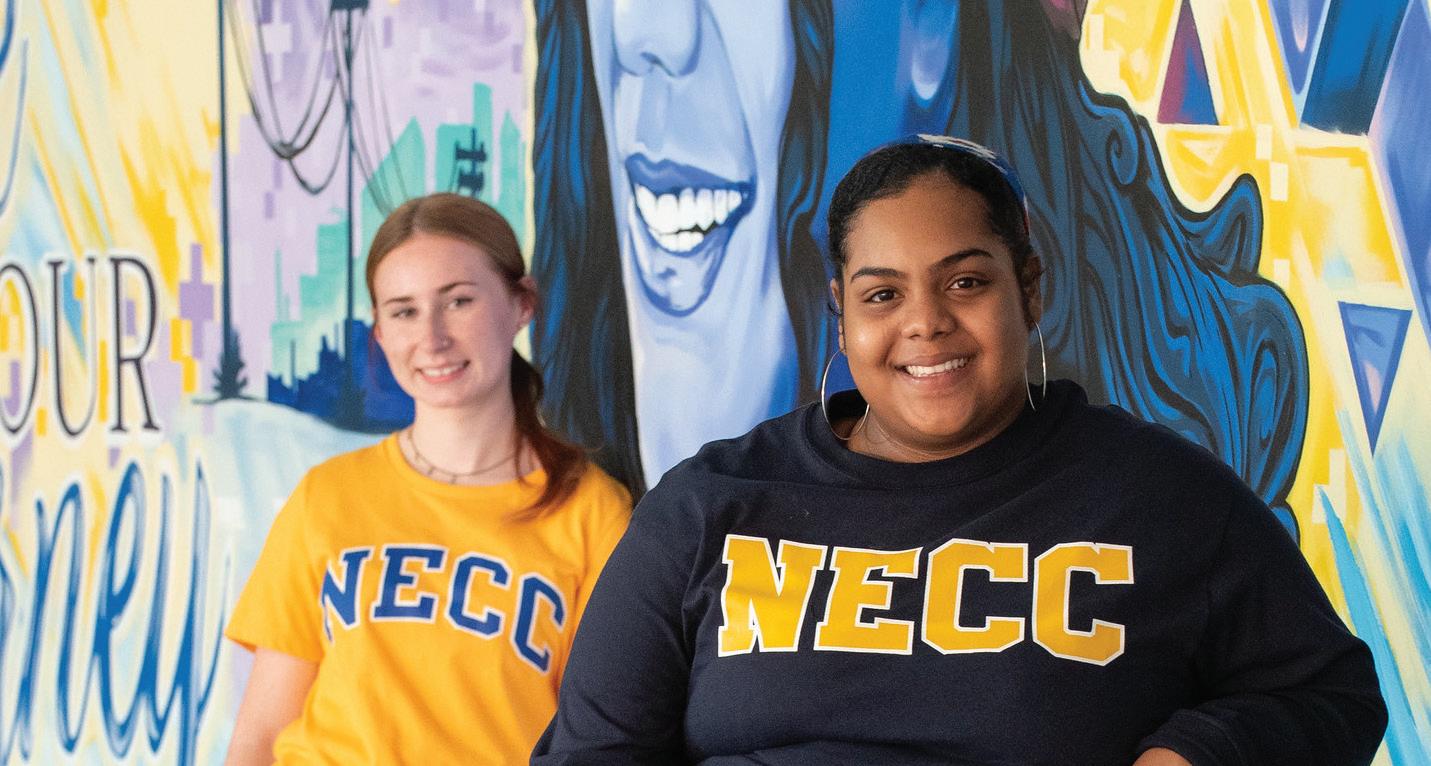
- continued from page 5
”I think it’s most important for students who maybe didn’t see college as an option for financial reasons,” said Luisanna Crespo, NECC’s PK12 and international programs coordinator. Indeed, Department of Elementary and Secondary Education data shows that high school graduates who participated in Early College programs are enrolling in college at a rate that is 20 percentage points higher than their high school peers. Additionally, their FAFSA completion rates are 25 percentage points higher than school peers.
The program has also benefited underserved communities, with two-thirds of students enrolled in Early College programs identifying as Black or Latino. Moreover, Early College students of color attended college at higher rates than peers of the same race not enrolled in the program, according to state data compiled over the past two years.
And because the Early College program also includes “pathways” that mimic college majors, including business, criminal justice, healthcare, and education, students can experience the rigors and culture of college while also getting a taste of their possible major.
Years later, McLaughlin still sings the praises of Early College.
“Even to this day my friends and I still talk about how thankful we are that we did everything that we did,” she says.
This story was written by Alex Pecci ‘02
OVER THE SUMMER, 150 NECC instructors built over 200 NEW ONLINE COURSES a more than tenfold increase in the typical number of online courses available at NECC in a given semester.
During the spring and summer months, the staff, faculty, and students of Northern Essex worked hard to accomplish a feat that would have seemed impossible just months earlier: moving an entire community college— with all its unique learning modules, resources, and support services— to a majorityonline format.

While NECC, which serves one of the lowestincome populations in the commonwealth, is no stranger to challenges, it was faced with a confounding set of questions. How would it ensure that students and staff had access to critical technologies and reliable Wi-Fi? How would it transition over 200 in-person courses to a new format, while maintaining their interactive qualities? What would the “community” aspect of community college look like without the convenience of in-person connection?
Engineering Professor Doug Leaffer is teaching online for the first time, using the techniques and tools he learned over the summer in iTeach.
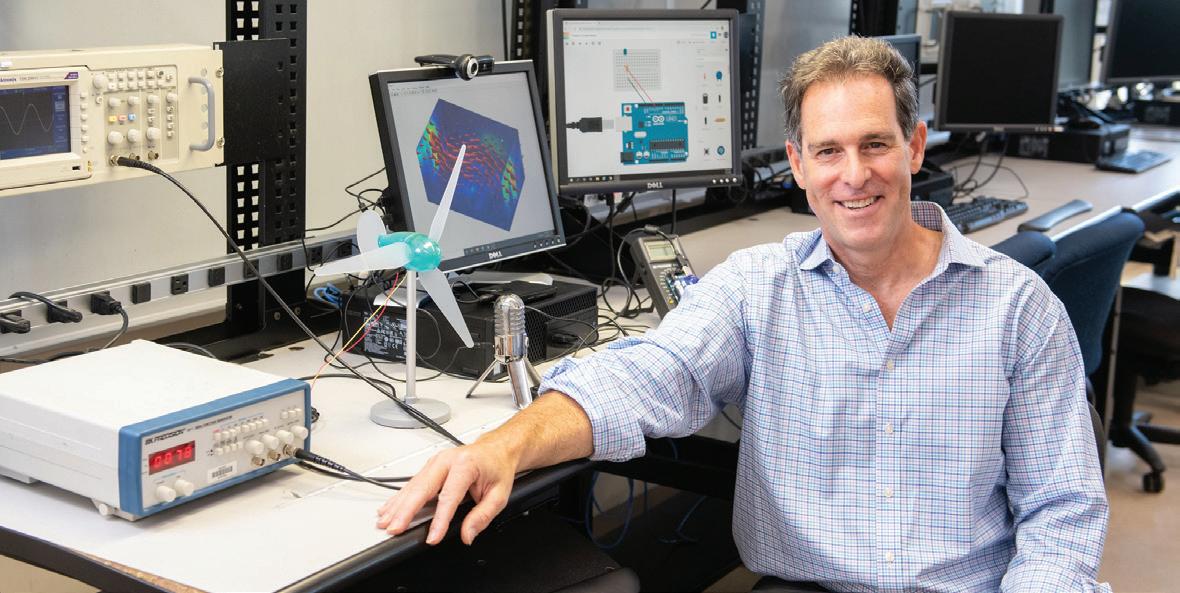
Read on to learn how Northern Essex responded to, and continues to address, the incredible circumstances brought on by the COVID-19 pandemic.
In late May, Northern Essex announced that nearly 90% of its fall courses would be offered online. - continued on page 9


Sarah Courchesne, professor of natural sciences, taught online for the first time in the spring, due to the pandemic. Courchesne values connecting with her students face-toface, recruiting interns for her summer Great Black-backed Gulls Project on Appledore Island in Maine and often leading students on hikes in the White Mountains. After spending the summer transitioning her courses to online delivery, she reflects on the experience. Courchesne has a B.A. in English and a doctorate in veterinary medicine (DVM).
Teaching is a recurring sequence of goodbyes. The communities we build from scratch and tend over the course of fifteen weeks dissolve, and we go our separate ways. It ends abruptly even in a normal semester; it’s a simple fact that I will never see or hear from most of those students again.
Abrupt means sudden, but this spring, I found myself thinking of an older meaning of abrupt, which means “to separate, to pull away.” Teaching once we’d left campus felt like that. Somehow, we’d need to try and sustain our community without its structure, without a common place or time. Knowing my students would all be under massive strain, I did not require any real-time class meetings, shifting instead to a self-paced model of individual instruction and feedback between me and each student. They bore up well, kept apologizing to me for their (completely normal) loss of focus and motivation, and
learned as best they could. Over and over, I heard, “it’s not the same.” They finished the work, wrote self-reflection letters; I wrote back to each of them with gratitude and goodbye.
Summer was frenzied, flailing. I was preparing to teach fully online for my first time ever, and I didn’t know what to do. There was technical support, apps and programs that I could potentially employ, good instruction in how to make my materials universally accessible. We were offered many tools, but the best tools are flexible in purpose— you can use a hammer to join, to knock free, to pry apart. So many of the tools I learned about in summer were purpose built with a strict idea in mind— this one to capture your lecture, this one to deliver a virtual laboratory assignment— and I heard in my head my students’ voices saying “it’s not the same.” So many of the tools and techniques were aimed at keeping things the same, but replicating only the setting, the exams, the superficial trappings of education. But those weren’t the things my students lamented losing. They missed the community we’d built. Once I knew that, my plans for the fall crystallized. Everything organized itself around that single goal: to build a community, however atomized and dispersed we might be in time and space. It could not be built by me alone, ahead of time. Now, we are constructing it jointly as we go— the only way a community ever gets made.
- continued from page 7
By making a decision early, the college had the time to focus on building an online experience that would be consistent with what students could experience in a face-to-face classroom. The college invested over half a million dollars in CARES Act funding to help faculty over the summer transition courses to online delivery. That money covered faculty stipends for developing online courses and a team of “buddies,” nine faculty members who have taught online successfully in the past and can now mentor and coach those who are new to online.
Key to all of this was the college’s Center for Instructional Technology, which has been helping faculty develop online courses for 20 years, most recently using a six-week online training module that they’ve developed called “iTeach”.

Over the summer, 150 NECC instructors built over 200 new online courses— a more than tenfold increase in the typical number of online courses available at NECC in a given semester.
At the same time NECC’s professors were working vigorously to bring their courses online, students were also facing the challenge of studying in a new format.
Through surveys, the college learned that students were struggling with spotty internet, lack of adequate study space, lack of computer access, and anxiety about the transition.
The college created a number of initiatives to help address student challenges, including a team of 15 paid peer ambassadors who have been successful in online courses and can connect students who are struggling with resources; a laptop requirement for all students with funding available for those who need it; and Wi-Fi in most all campus parking lots.
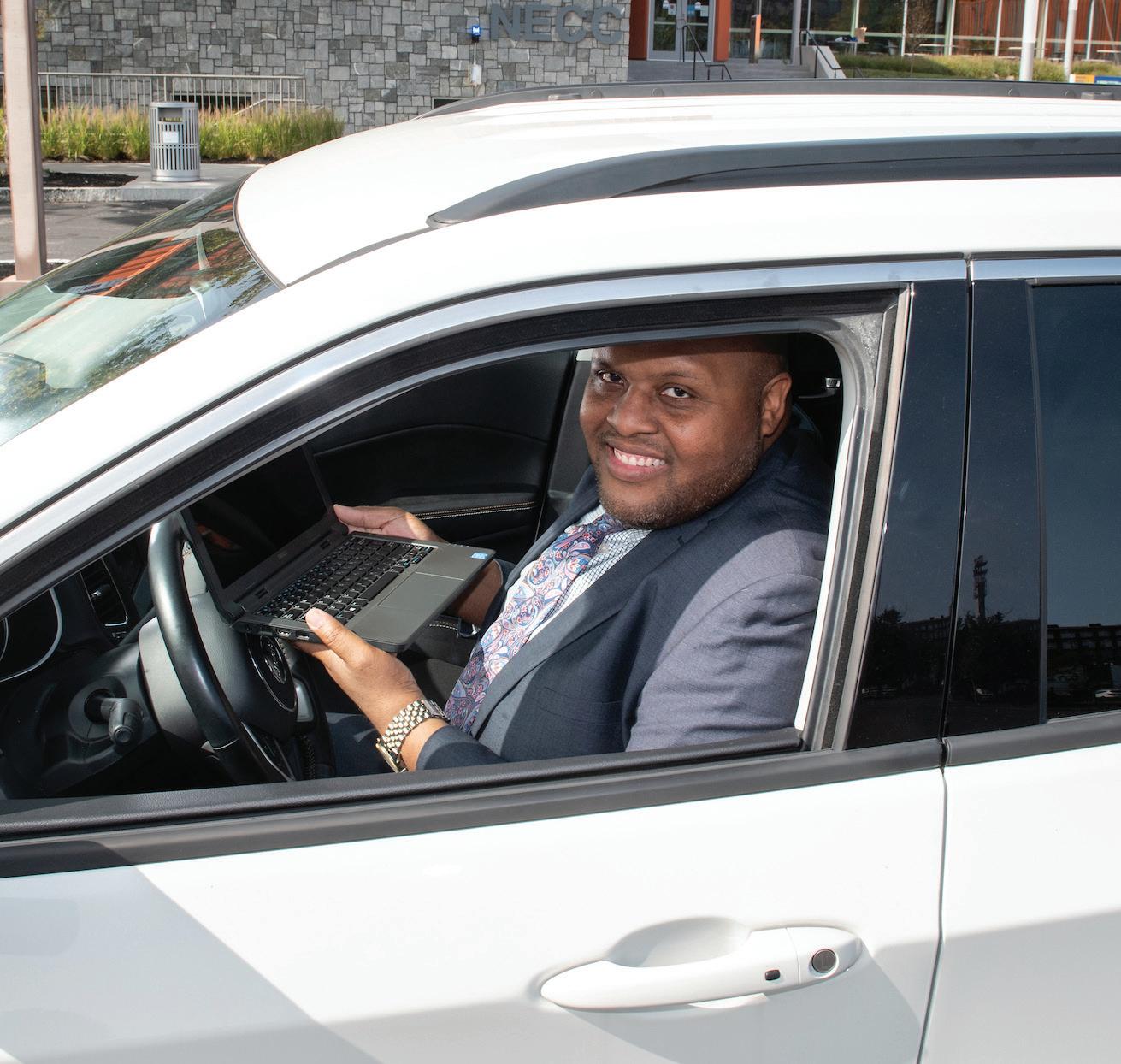
As a result of all of the hard work that was done this summer, Northern Essex’s online program is now stronger than ever and the college is better able to compete in the online arena, according to Bill Heineman, vice president of academic and student affairs.
“This is a long term investment in online learning,” said Heineman. “We are expanding the number of programs that we can offer fully online and growing our course offerings.”
“
“ . . . Northern Essex’s online program is now stronger than ever and the college is better able to compete in the online arena . . .
- Bill Heineman, Vice President of Academic and Student AffairsDean of Students Jonathan Miller demonstrates the free Wi-Fi, now available in campus parking lots.
Ashley Moore

Graduates of NECC now have the opportunity to participate in a range of new professional advancement services. This fall, NECC announced the launch of Handshake, an online job board and career management platform available to all students and alumni of the college. Users of the system will have access to customized opportunities— including internships, job postings, networking events, webinars, and more—that are directly tailored to meet their interests. The platform is appropriate for job seekers and employers alike.
Northern Essex is the first community college in Massachusetts to use Handshake, which is the platform of choice at four-year colleges and universities.
NECC has also expanded its career programming to include field-specific virtual career panels, featuring alumni guest speakers and other area professionals. Recent panels have welcomed back graduates such as Eduardo Crespo ’70, CEO of Hispanic Market Solutions, Kristin Bell ’02, advisor and housing specialist at Somerville-Cambridge Elder Services, Maggie Kostiew ’16, professional services engineer at ControlUp, and Chris Berns’16, senior software engineer at RevOps.
Alumni conducting job searches and employers looking for new hires can learn more about Handshake by visiting the career services page at www.necc.mass.edu/career.
Alumni interested in serving on career panels can reach out to the Alumni Office at alumni@necc.mass.edu or submit an information form at www.necc.mass.edu/update-contact .
The NECC Lupoli Family Culinary Arts Institute will offer noncredit courses for home cooks as well as credit programs for students who want to prepare for a career in the culinary arts.
Opened this fall, the institute occupies two floors at The Heights, a newly built ten-story luxury building on Merrimack Street with sweeping views of the Merrimack River. The space includes classrooms, laboratories, and state-of-the-art kitchens.

The space opened softly this fall with a series of 30 noncredit culinary arts courses. The institute will also be home base to two credit programs: the college’s Culinary Arts Certificate and the Associate Degree in Hospitality Management.
Students enrolled in those programs are studying online this semester.
To see a gallery of photos of the institute, visit www.necc.mass.edu/culinaryphotos.
Jennifer A. Borislow, founding principal of Borislow Insurance of Methuen, was recently named chairwoman of the Northern Essex Board of Trustees by Massachusetts Governor Charlie Baker.

“As a trustee, Jennifer has proven to be a thoughtful and creative thinker. Her connections to our community and her business acumen will serve us well,” said Lane Glenn, NECC president.
A member of the trustees since 2017, she succeeds Jeff Linehan ’77, who has served as chair since 2015.
Borislow, a lifelong resident of Methuen, is a nationally recognized expert, author, speaker, and thought leader on employee benefits, insurance, and related business strategies.
As chair, Borislow’s priorities will include strategic planning for 2021-2024; a review of the New England Commission of Higher Education (NECHE) accreditation process; a board self-assessment; and meeting with each trustee and cabinet member to learn more about their role and commitment to the college.
“My focus will be on bringing strong listening and communication skills,” said Borislow.
Member Amy Ackroyd was instrumental in starting this certificate program.
Northern Essex is now offering a 19-credit Children’s Behavioral Health Specialist certificate, which will help meet the high demand for professionals who are trained to work with children and families who have experienced trauma.
The program was started after Amy Ackroyd, LICSW, a member of the college’s human services advisory committee and the Merrimack Valley area director for Children’s Friend and Family Services, shared the need for a program of this kind.


Because there’s a 150-hour internship built into the certificate program requirements— and many students will do their internships with Children’s Friend and Family Services or other agencies in need of people with this kind of training— the program will provide a pipeline of qualified employees who will likely get hired upon its completion.
In addition, the program offers an opportunity for local agencies to bolster their existing employees’ skills and credentials.
The certificate program also has to potential to be the catalyst for students to pursue a human services education. Brian MacKenna-Rice, coordinator of NECC’s Human Service Programs, says that it was intentionally built to be fully transferable into an associate degree program, and that the majority— upwards of 80%— of NECC students who earn their associate degree in human services go on to receive their bachelor’s or master’s degrees as well.
The inability to gather in person for the 2020 commencement didn’t stop the college’s proud graduates and community members from sharing in the virtual celebrations. This year, dozens of photo entries from students and staff were received for the #NECC2020 contest, which was open to participants on all NECC social media platforms. The top entries (see left) were selected by committee vote and were awarded NECC gift baskets.

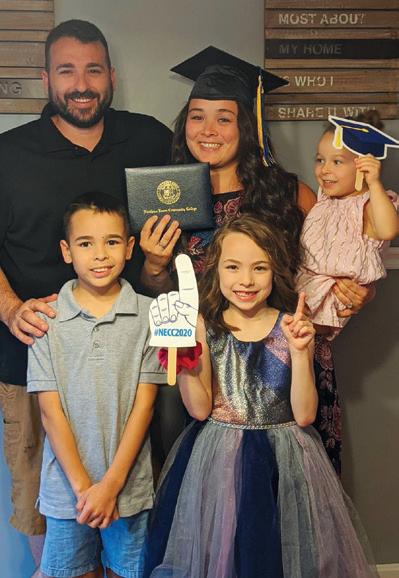



To view highlights of the virtual commencement ceremony, visit: www.necc.mass.edu/ commencementhighlights.
The third Annual Golf Tournament, held on Monday, August 31 at the Renaissance Golf Club in Haverhill, raised over $16,000. With more than 35 event sponsors, the tournament attracted 125 golfers— a sellout— representing 32 teams. The winning team included Jacob McAdam, John Maginnis, Jon Pierce, and William Kannan.
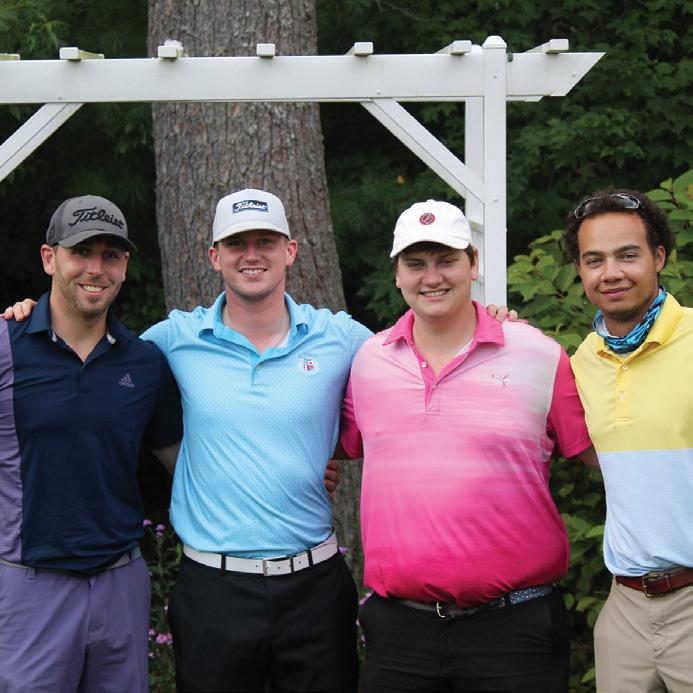
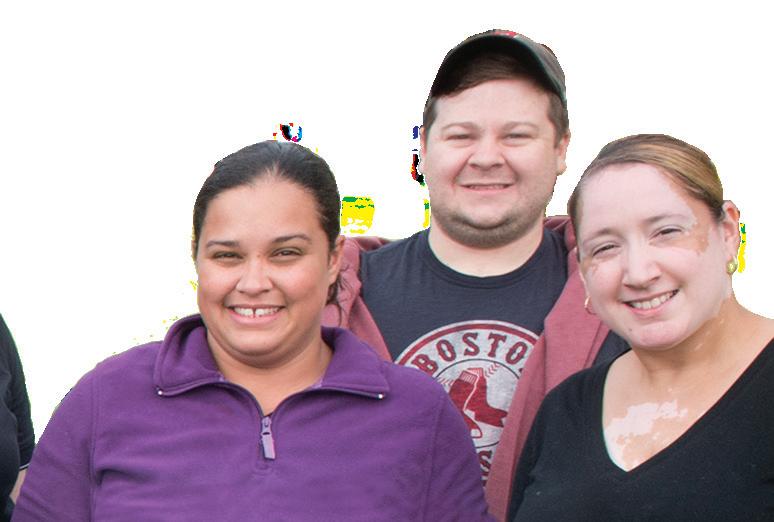



Hopefully you have been inspired by reading the incredible stories of our students and alumni in this issue of alumnecc. It is because of donors like you that we are able to provide critical scholarships and programs that help our students succeed at NECC. Your donation of any size has a positive impact on our students and communities, helping both to grow and thrive.
Please visit www.necc.mass.edu/giving to make a donation today, or contact Allison Dolan-Wilson, vice president, Institutional Advancement; executive director, NECC Foundation, Inc. at adolanwilson@necc.mass.edu or 978-556-3624 for more information on the many ways you can support NECC.
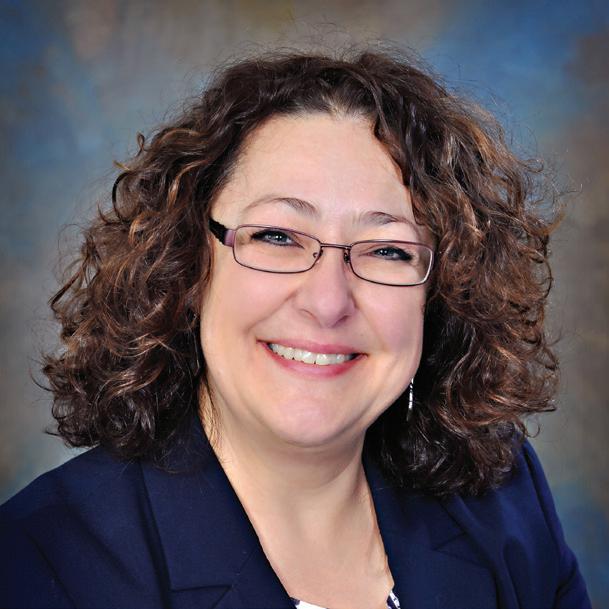
Here, at HC Media, I hire from our pool of current and former interns because I trust they have the video production skills needed to do the job. We have great success hiring NECC interns. HC Media is a stepping stone for many who seek a career in the television industry. Some of our former interns turned production staff have left to take jobs at WHDH, the Hallmark Channel, Universal and other West Coast production companies. Others who’ve stayed with us enjoy a successful career at HC Media. We just celebrated a ten-year full-time employee who came to us as a NECC intern.

Above, shown left to right:
Darlene Beal, Executive Director; Chris Bowden, former NECC intern now celebrating 10 years as a fulltime employee at HC Media.
Interested in partnering with NECC to hire future interns or employees? Visit www.necc.mass.edu/business-industry to learn how.
Since graduating from NECC’s business management program, JAMIE HELLESEN ‘03 has gone on to fulfill her dreams of working in the field of hospitality. Since 2004, she has been organizing events and operations for a range of organizations, including travel agencies, wedding planning services, hotels, and restaurants. Hellesen currently serves as director of Corinthian Events in Boston. This past spring, she furthered her educational journey by earning a bachelor’s degree in hospitality management, summa cum laude, from Johnson & Wales University, and a Destination Management Certified Professional (DMCP) certification. She credits NECC with helping to launch her passion for the field.
Northern Essex was the perfect stepping stone to my hospitality career. While I attended NECC I participated in the Disney College Program and it was during my internship that I realized hospitality was my passion. My experience both at Disney and NECC helped me to jump start my career into event planning.

William Chaisson ‘69
Paul Simard ‘73
Joyce Freitas ‘79
Charles Lane ‘80
Ellen Garfi ‘83
Brendan O’Rourke ‘93
Karen Paget ‘93
Steve Wigall ‘07
Patricia Frost (no class year)
Linda Fiorentini (no class year)

TOM SEXTON ’66 has published a new collection of poetry, Cummiskey Alley, which explores his experience growing up in Lowell.
NANCY GILLETTE ’93 has been named chief growth officer of HouseWorks, one of the largest independent private home care companies in the U.S.
SARAH BIXBY CENTRIC ’02 has been named Physical Education Teacher of the Year by the Massachusetts Association for Health, Physical Education, Recreation, and Dance.
BRIAN MOHIKA ’06, founder and CEO of CathWear, has been named the 2020 recipient of the Merrimack Valley Chamber of Commerce Emerging Leader Award.
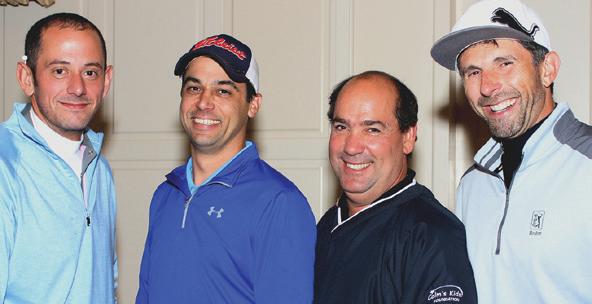
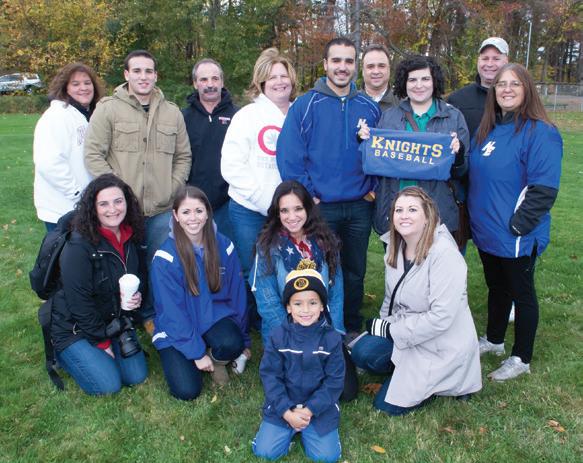
MATT INCONTRI ’12 was highlighted in local press outlets for his animation work.
Incontri’s work has been featured on several shows, including Saturday Night Live (SNL).
KEVIN DECARVALHO ’15, a member of the Haverhill Police Department, was awarded the department’s Employee Excellence Award for January - March 2020.
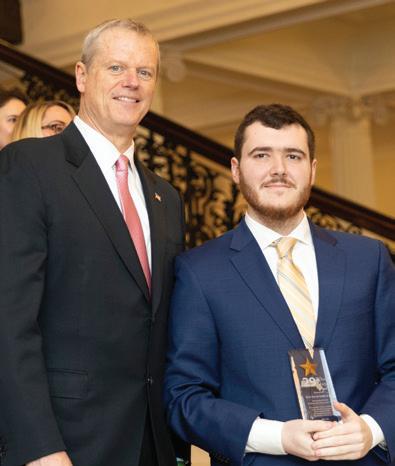
JOUEL GOMEZ ’15 has started a new position as an adjunct professor at Boston University.
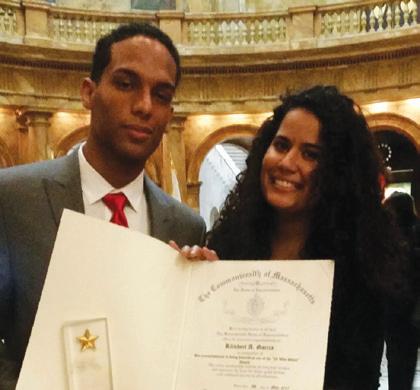

IAN SHEA ’15 recently collaborated with the liberal arts department to offer a Zoom webinar on managing and maintaining blog sites.
EVAN GLEW ’17, a former NECC athlete, was highlighted in the Eagle Tribune for his ongoing journey as a baseball player and student. Glew graduated from Franklin Pierce University this spring and is now pursuing a master’s degree.

LUIS SANTIAGO ’18 has been appointed to the position of veterans service officer for the City of Haverhill.
SPENCER BROWN ’19 was highlighted in Wicked Local outlets this spring. A member of the Los Angeles Angels baseball organization, his career has been temporarily put on hold as a result of the pandemic.
JENNIFER OSGOOD ’20 was featured in the Newburyport Daily News for her experience working as a respiratory technician during the COVID-19 pandemic.

Helen Ubiñas ‘92, columnist at the Philadelphia Inquirer, has been named the first winner of the Sally Kalson Courage in Journalism Award, which aims to recognize one journalist per year whose work demonstrates fearlessness, fortitude, and excellence. Ubiñas was selected for the award following the publication of a series she wrote chronicling the toll of U.S. gun violence. The award is presented by the family of the late Pittsburgh-Post Gazette columnist Sally Kalson and includes a $5,000 award.
An eight-year employee of the Inquirer, Ubiñas has been reporting on gun violence for over two decades. Her pursuit of the subject began in 1999 while employed as a reporter at the Hartford Courant, which earned a Pulitzer Prize for breaking news coverage of a mass shooting that same year.
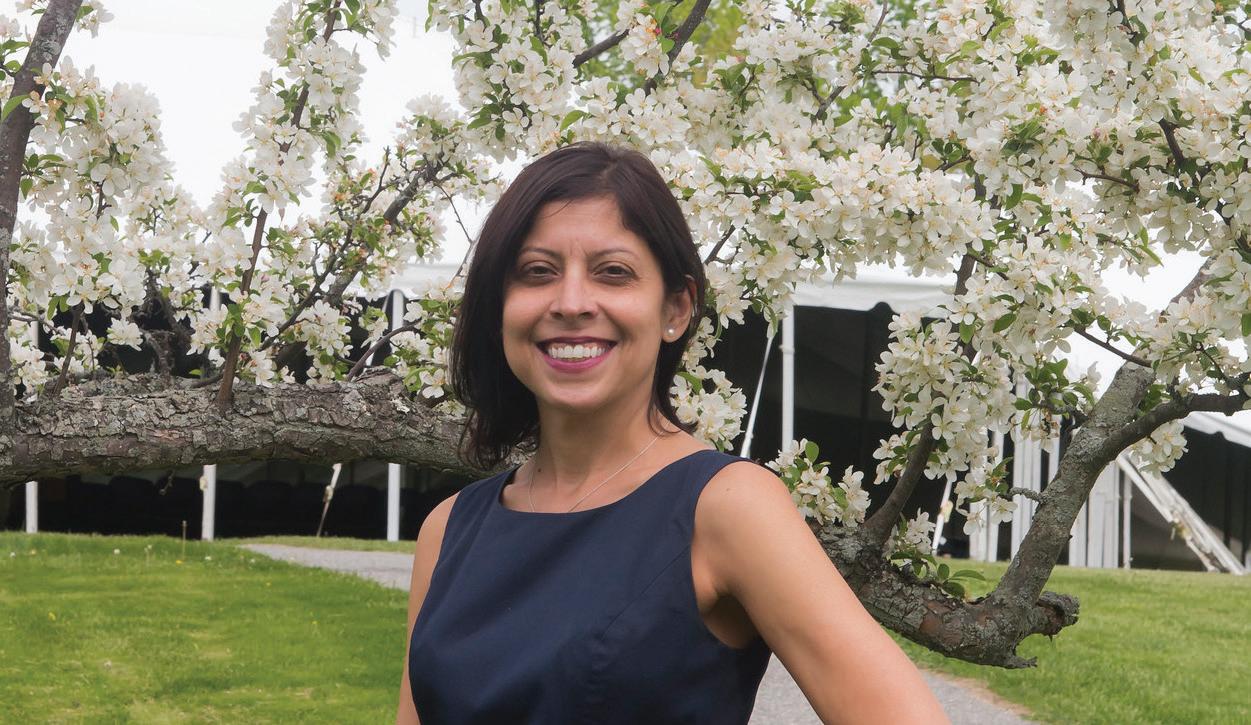

Since 2016, Ubiñas has also organized an annual event called “Fill the Steps,” a gathering held at the steps of the Philadelphia Museum of Arts that brings together hundreds of individuals impacted by gun violence or demanding reform.
Ubiñas is a recipient of the NECC Outstanding Alumni Award and served as a keynote speaker at the college’s 2015 commencement ceremony. While a student at Northern Essex, she was editor of the Observer, our award-winning student newspaper.
The NECC community was saddened to learn of the passing of Ludwig “Lou” Schwechheimer ’78, whose efforts as vice president and general manager of the Pawtucket Red Sox helped transform the team into a Rhode Island staple. Schwechheimer, aged 62, passed away due to COVID-19 related complications in July. Many baseball organizations, including the Pawtucket Red Sox and the Wichita Wind Surge, organized statements on his passing.
A leading figure in the organization since 1986, Schwechheimer took home I.L. Executive of the Year honors twice and saw the Pawtucket Red Sox win three Governor’s Cup titles under his tenure. In 2015, he left his career with the team to purchase two minor league franchises, including the Wichita Wind Surge.
Schwechheimer has long expressed pride in his NECC education and was the NECC commencement speaker in 1998.
